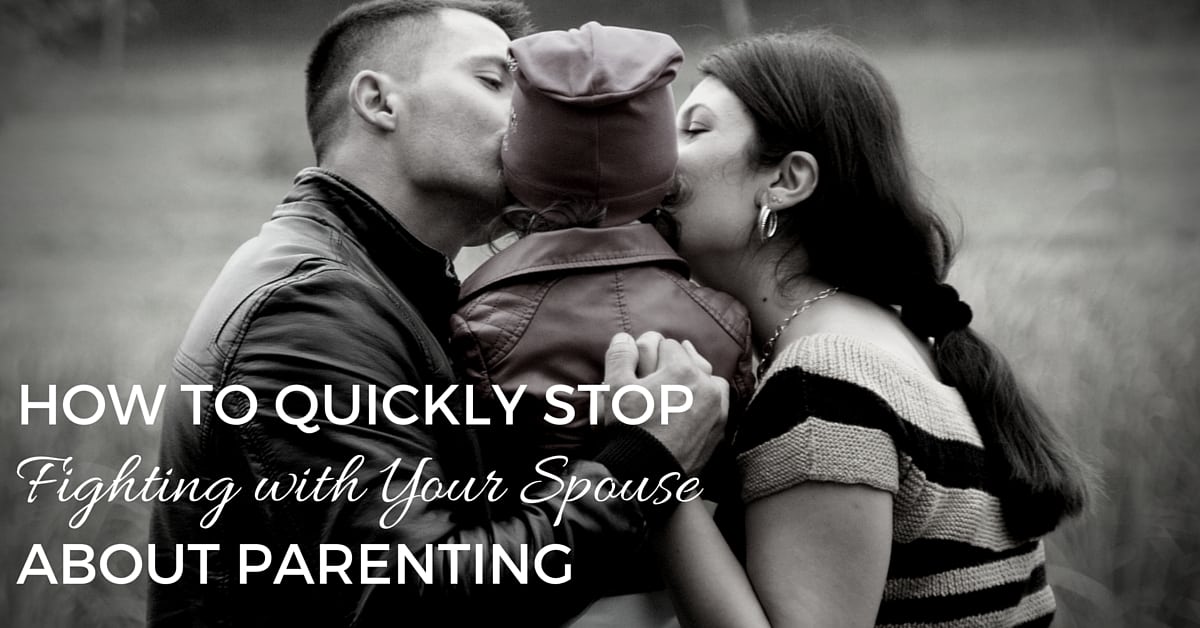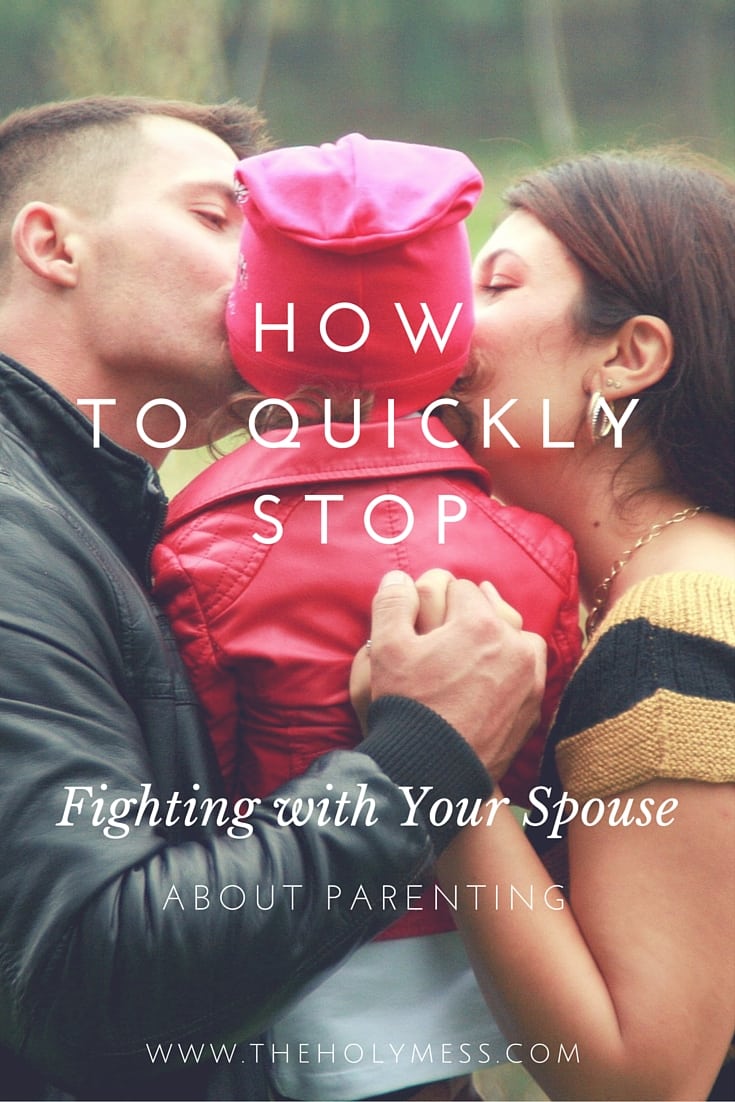 You’ve heard the advice before, right? Be united in your parenting.
You’ve heard the advice before, right? Be united in your parenting.
This is really difficult to do in real life. In yesterday’s blog post, 3 Questions You Need to Ask for Parenting Battles with Your Spouse, I talked about some of the biggest traps you might fall into when you argue about parenting issues. (And trust me, I’ve fallen into all of them.) Be sure to read that article here.
Once you’ve figured out some of your sticking points, it’s time to get to how to stop fighting with your spouse.
How to Quickly Stop Fighting with Your Spouse About Parenting
1. Cut yourself some slack because you aren’t alone.
I’ve read a few parenting and marriage blogs from women who have said they “never” fight with their spouse. I’ve got just one thing to say about that.
Whateve’s.
A few weeks ago I attended a pastor’s conference called Best Practices for Ministry in Phoenix.
Friends, if you could have heard some of the personal prayer questions that were requested during worship, you would cry. (I did.) Rebellious teens. Broken marriages. Drug and alcohol addictions. If this is coming from people who are leaders in faith, why do you think you are different?
I want to stress that I’m not saying this because your leaders are hypocrites. I say this because we are human, and so are you.
What you are going through is normal. Even the best of us go through seasons or have sticking points where we argue with our spouse about parenting.
That doesn’t mean you have to settle for it, though.
2. Make a commitment that you will parent from a united place.
Parenting from a united place might require re-commitment if things have gone down a negative path for awhile.
Sit down with your spouse (triple bonus points if you go out to dinner and do this) and create a plan. Decide what the rules are for your home and what will happen when your child does not follow the rules. Keep it simple.
3. Turn the ownership back to where it belongs — your child.
This is the absolute key to changing your parenting style. (It also happens to be my personal favorite concept.)
My husband and I saw a huge shift in our parenting when we learned that we needed to turn the responsibility for our child’s behavior back where it belongs — with our child.
If YOU are working harder on your child’s issue than you child is, you’ve got a big problem.
My favorite phrase when working with my kids during difficult behaviors is this: “What are you going to do about it?”
I am not going to solve my kids’ problems for them. This works for whining, “it’s not fair”, tantrums, and all sorts of other behaviors. (Here is a link to examples of how I use it.)
Another favorite phrase of mine is when my child makes any type of comment about me, my husband, his or her siblings, or other children: “We aren’t talking about me right now. We are talking about you.”
For example, child whines: “This is so totally unfair. Dad would let me go to the game. You are way too strict and mean!”
Me: “Hmmm, I hear that. You think I’m being unfair and dad would make a different decision. But we aren’t talking about me right now. We are talking about you.” (You can even continue with, “I’ve already said no to the game, and I know you seem angry about that. How are you going to handle it?”)
Rather than arguing with your spouse about a solution, move the problem back to your child and coach him or her in making a decision.
This strategy works great for elementary school kids, middle schoolers, and teens, and it can be used on a more simple level with kids as young as 2 years old. Your child is always responsible for himself as a person. Giving him this ownership and accountability for his behavior is respectful.
Do you and your spouse argue about parenting? Do you give your child responsibility for his or her own behaviors?
If you and your spouse use these parenting strategies and find you have difficulty coming to agreement, I encourage seeking the help of a therapist. This is not intended as a substitute for professional advice.








Leave a Reply